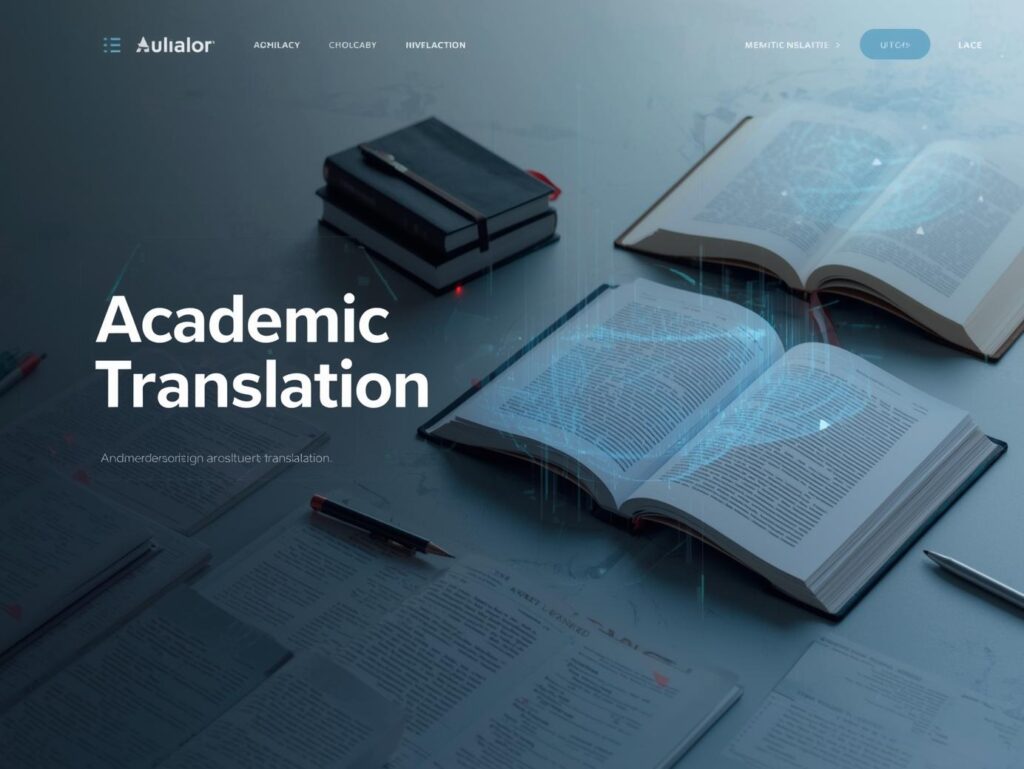Academic Translation: Bridging Language Barriers in Scholarly Communication
Academic translation plays a pivotal role in facilitating global scholarly exchange by converting research, educational materials, and academic publications across different languages. As the world becomes increasingly interconnected, the demand for precise and contextually accurate translations of academic content has surged, underpinning the dissemination of knowledge across linguistic and cultural boundaries. This discipline demands more than mere linguistic proficiency; it requires a deep understanding of specialized terminology, disciplinary conventions, and the nuances inherent in academic discourse.
The Significance of Academic Translation in the Global Knowledge Economy
Academic translation serves as a catalyst for international collaboration, innovation, and the democratization of knowledge. It enables researchers from diverse backgrounds to access and contribute to breakthroughs in fields such as medicine, engineering, social sciences, and humanities. According to a report by UNESCO, over 90% of scientific publications are in English, yet only about 20% of the world’s population speaks English fluently, creating a significant language gap. By translating key research outputs into multiple languages, academic translation ensures equitable access and fosters diversity in scholarship. For instance, translating clinical studies into local languages can directly impact public health policies and medical practices in non-English-speaking regions, exemplifying its societal importance.
Core Challenges in Academic Translation
Despite its critical role, academic translation faces numerous challenges. One primary obstacle is the preservation of terminological accuracy. Many scientific terms lack direct equivalents in target languages or carry different connotations depending on cultural contexts. For example, translating a complex biochemical process requires not only linguistic skill but also subject matter expertise to maintain fidelity. Additionally, the formal tone and structured style typical of academic writing demand meticulous attention to detail to avoid ambiguity or misinterpretation.
Another challenge lies in the cultural adaptation of content. Academic texts often contain idiomatic expressions, culturally specific references, or regionally relevant data that may not translate directly. Translators must balance fidelity to the original with cultural sensitivity, ensuring that the translated material remains comprehensible and impactful for the target audience. Furthermore, the rapid evolution of terminology, especially in cutting-edge fields like artificial intelligence or biotechnology, necessitates continuous learning and updating of translation glossaries.
Specialized Skills and Tools for Academic Translation
Effective academic translation requires a specialized skill set extending beyond general language proficiency. Translators must possess a deep understanding of the subject matter, which often involves collaborating with subject experts to clarify ambiguous content. Familiarity with academic conventions, citation styles, and formatting standards is also essential to produce publishable-quality translations.
Technological advancements have greatly enhanced the efficiency and accuracy of academic translation through tools such as Computer-Assisted Translation (CAT) software, terminology management systems, and machine learning algorithms. These tools enable translators to maintain consistency across large documents, manage glossaries effectively, and expedite the translation process. However, reliance solely on machine translation remains risky due to potential inaccuracies in technical contexts, underscoring the indispensable role of human oversight.
The Role of Quality Assurance in Academic Translation
Given the importance of accuracy in scholarly communication, rigorous quality assurance protocols are integral to academic translation workflows. This process includes multiple stages such as initial translation, peer review, editing, and proofreading. Peer review by subject matter experts ensures that technical content is correctly interpreted and conveyed. Editing focuses on clarity, coherence, and adherence to academic standards, while proofreading addresses grammatical and stylistic issues.
Many academic institutions and publishers now implement standardized guidelines and accreditation systems for translators specializing in scholarly content. Certification by professional bodies such as the American Translators Association (ATA) or the Institute of Translation and Interpreting (ITI) lends credibility and assures clients of quality standards.
Impact of Academic Translation on Research Dissemination and Policy
The influence of academic translation extends beyond individual publications to shape research agendas and inform policy decisions. Translated research findings can influence global health initiatives, environmental policies, and educational reforms. For example, the translation of climate change research into multiple languages has raised awareness and mobilized action across continents. Similarly, during global health crises like the COVID-19 pandemic, rapid translation of scientific guidelines and vaccine information was crucial in ensuring effective public health responses worldwide.
Future Directions and Ethical Considerations
Looking ahead, the field of academic translation is poised to benefit further from artificial intelligence and machine learning innovations. These technologies promise to enhance speed and consistency but also raise ethical concerns regarding accuracy, intellectual property, and the potential for bias. Ensuring transparency, maintaining the integrity of scholarly work, and respecting cultural contexts remain paramount.
Moreover, promoting diversity among translators—by including multilingual scholars and specialists from underrepresented regions—can enrich the translation process, ensuring that a broader spectrum of voices and perspectives is incorporated into global scholarship. As academic translation continues to evolve, establishing ethical standards, investing in translator training, and leveraging technological advancements will be essential for fostering inclusive and accurate knowledge exchange across the world.
